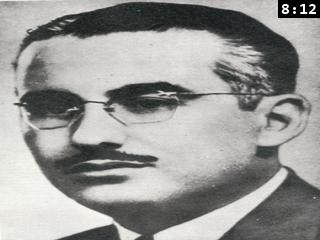When it comes to sources, they can be classed as documentaries and personal experiences. Within personal experiences we can find those testimonial sources (experiences of others), and in each case should prevail the intuition and acumen of the radio writer: intuition to identify what is important and interesting; insight, which involves discernment and sharpness to identify what i actually true among all the important and interesting material; and even within the certainty and truth, they must find what fits within what we might define as objectivity. It does not have to be necessarily impartial, because in fact its existence is dubitable, even the most objective news can lack “impartiality” in the best sense.
It simply takes moving through the pyramid of the news to give more relevance to one or another aspect. Being impartial does not mean giving up the truth, but offering an approach consciously or subconsciously determined. Even impartiality can become a sign of bias, if we were to go deeper into the purpose of the news. Therefore; let’s be objective when telling the truth, and that will be enough to be satisfied.
The documentary sources are those that appear in written or audiovisual support and can be used to inquire about background, consequences and facts. A smart and cunning radio writer will go to various sources that can offer a different r even opposed approach to their own when investigating. Hence, they will be able to compare and see which one is closer to the fact or objective explanation that serves as a basis for analysis.
A risk – or even worse, a danger – for radio writers is to query only one or two documentary sources, especially if they are not entirely credible. There are books whose source status could be disqualified, but the risk increases when inquiring online. Not all web pages or all online encyclopedias are reliable. The first solution to that obstacle is, in first place, the level of information and general culture of the radio writer.
The personal experiences , as the term suggests, refers to the radio writer´s personal experience, nothing is as healthy and objective as “telling what you have seen and experienced;” although the levels of perception differ from one person to another, these levels re conditioned by elements that can be known in a good test of Communication. Nor can we expect writers to go through all the experiences and subjects they are going to write about, but they do need to have a full knowledge about it.
As previously mentioned, the personal experience source have another major category: the testimony, which – I said and I repeat – means personal experience lived by others. Those who testify what they have seen (in relation to an event or experience) also tell the story from their personal perception, which is shaped by individual, group, social and socio- psychological conditioning.
In the case of testimonial sources, if the radio writer assumes the veracity of any of them without verifying them first, they risk to be inaccurate. A radio writer who respects what they do, if they have one single testimonial source – which they have checked or not – should at least mention it or make reference to it so they will be free of giving categorical credit about something they have not verified themselves.
Translated by:



